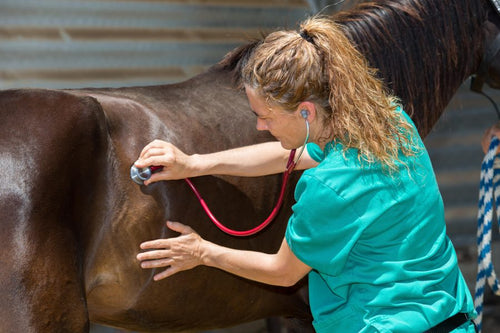As the seasons change, horse owners are faced with a myriad of challenges in maintaining their equine companions' well-being. Among these, the importance of gut health stands out as a critical factor in ensuring the overall health and vitality of horses.

The Digestive System: A Vital Hub of Health
The equine digestive system is a complex network of organs responsible for breaking down food and extracting essential nutrients. At the core of this system lies the gut, comprising the stomach, small intestine, cecum, and large intestine. A delicate balance of beneficial microbes inhabits the gut, aiding in digestion, nutrient absorption, and immune function.
Seasonal Transitions and Gut Health
Seasonal changes, particularly the shift from warm to cold weather and vice versa, can impact the equine digestive system in several ways. Fluctuations in temperature, changes in turnout routines, variations in forage quality, and alterations in feeding schedules can all affect gut health.
Challenges Faced by Horses
During seasonal transitions, horses may experience disruptions in their digestive processes, leading to issues such as colic, gastric ulcers, diarrhea, and weight loss. The stress of adapting to new environmental conditions, coupled with changes in diet and exercise, can compromise the delicate balance of the gut microbiome.

Maintaining Gut Health: Key Strategies
-
Consistent Diet and Forage Quality: Ensure a consistent diet rich in high-quality forage to support optimal digestive function. Gradually introduce any changes in diet to minimize the risk of digestive upset.
-
Hydration: Adequate hydration is essential for maintaining gut motility and preventing impactions. Provide access to clean, fresh water at all times, and consider offering electrolyte supplements during periods of increased sweating or decreased water intake.
-
Regular Exercise: Regular exercise promotes gut motility and helps prevent issues such as colic and gastric discomfort. Maintain a consistent exercise routine for your horse, even during seasonal transitions.
-
Probiotics and Prebiotics: Supplementing your horse's diet with probiotics and prebiotics can support a healthy balance of gut microbes, enhancing digestion and immune function. Consult with your veterinarian to determine the appropriate supplements for your horse.
-
Stress Management: Minimize stressors that can negatively impact gut health, such as changes in routine, transportation, or social dynamics. Provide a stable environment with plenty of opportunities for relaxation and mental stimulation.
In conclusion, prioritising gut health is essential for maintaining the overall well-being of horses during seasonal transitions. By implementing strategies to support digestive function, horse owners can help their equine companions thrive year-round.
Here at Saddle Up and Ride we recommend adding NAF Daily Gut Health or Protexin Gut Balancer into your horses feed to help maintain a happy and healthy gut !

